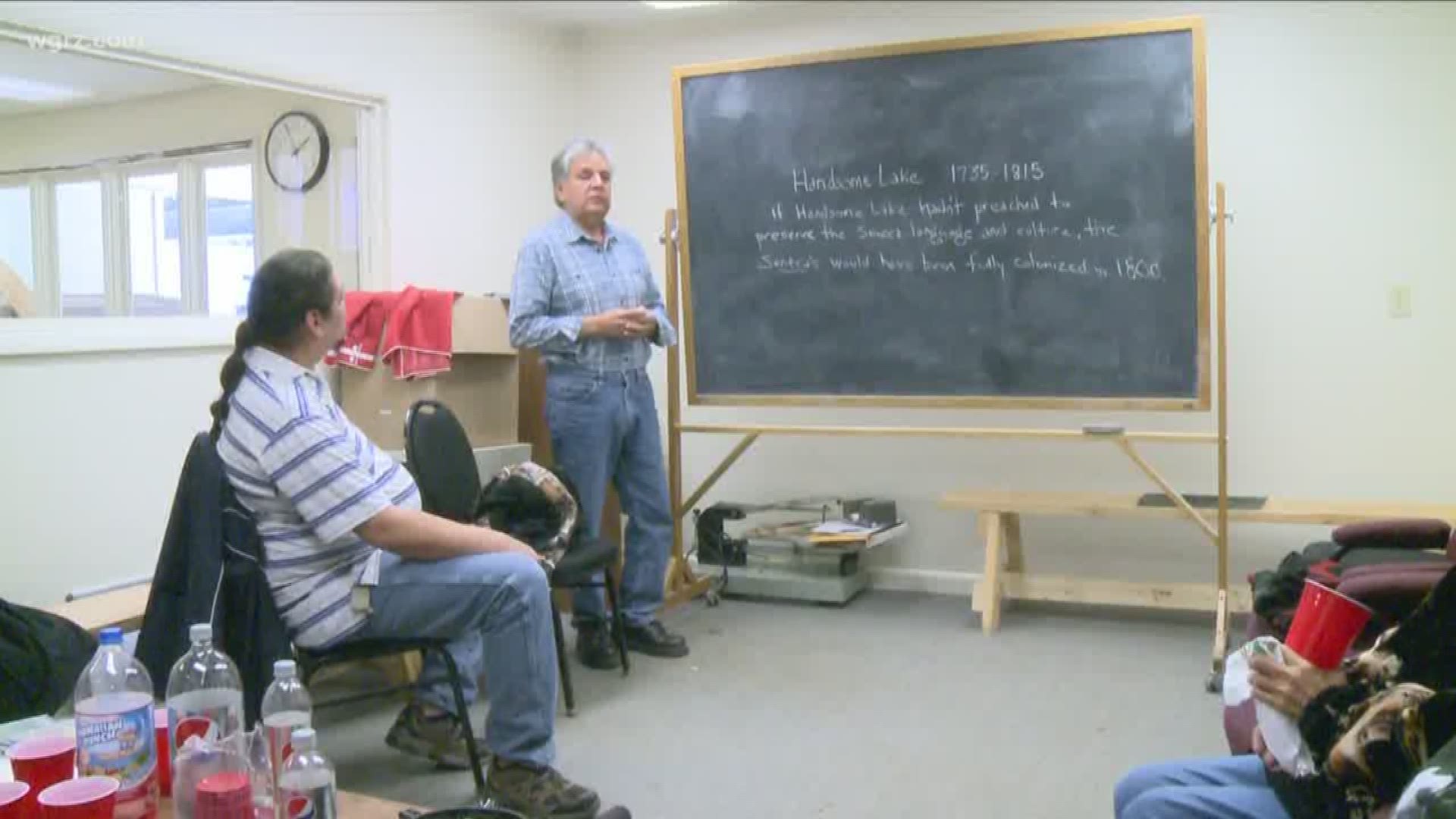SALAMANCA NY — The Seneca Nation has roots in the Northeast that are both deep and old, a history that dates back thousands of years. So it should be no surprise that their language reflects the depth of their culture.
Sue Blacksnake, Acting Director Of the Seneca Arts & Learning Center, explains, "It's been here since time immemorial, It's our way of expressing ourselves,and in it is all of our values,our morals, our ethics, is in our language."
"Everything in the Seneca language, has to do, and all Iroquoian languages, and I'm sure all Native languages, have to do with our relationship to others," adds Sandra Jimerson-Dowdy, CEO of The Faithkeepers School. "We have a relationship with the earth, we have a relationship with the sun, the moon, and our Maker."
The Seneca language has all but disappeared over the last century. It's decline was caused in large part by the tragic failure of the American Indian Boarding School system. Students were forbidden to speak their native language at the schools, and to do so meant punishment.
The motto was "Kill the Indian and save the man."
"I believe in my heart that it was very orchestrated and intentional," says Blacksnake. "Around 1850, we had the introduction of Indian boarding schools, and that has taken the biggest toll in an orchestrated, organized, American government attack on our language, because it was forbidden."
Jimerson-Dowdy says, "We can dwell on that and blame that for us not being able to speak our language, but, no, we've got to get over that, but we have to forge forward and keep on."
That is exactly what the nation is doing. They have developed a multi faceted approach to teaching their ancient tongue. The whole process begins with the, "Mommy and Me" program, which began two years ago with 4 babies, their moms, and a great idea.
Alexis Stevens, the Seneca Language Program Director says, "Our First Language fluent speaker Helen Beaver she's our oldest, ninety three, so she sits in with them, rocks the babies, talks to them ,just lets the moms interact with her, so that they can have language when the babies are listening. Year two, they're starting to mimic the moms, they're starting to say words back, so it is working, it is effective."
As they get older, the young students move on to the Faithkeepers School and the Montessori Seneca Language Nest. Here they spend the day learning both language and culture.
A teacher at the Montessori Faithkeepers School, John Block explains, "Throughout the day, yes, we will encourage speech from them. A lot of times when they say something in English, we will repeat it back to them in Seneca, so that this way they can hear how that's supposed to go. We've had some very good success stories throughout the years where we have had children initiate conversation on their own."
One of the biggest challenges faced in trying to pass on the language is the dearth of fluent Seneca speakers. Out of the entire Seneca population, there are less than thirty people who can speak Seneca fluently.That means the teachers must be taught too, and that's where the Immersion Program comes in, teaching the language to adults, who will then pass it on to the young.
"Learners slash teachers, and as soon as they learn something they teach it," says, Jimerson-Dowdy "They learn some more, then they teach it. And so it's an ongoing cycle that happens with language that we would be using in English every day, now we're able to use Seneca for those."
The programs form the roots of a tree that nourishes many. It's teaching that feeds back into itself, creating a self sustaining cycle that will help preserve the Seneca way of life and lead the Nation into the future.
"You stay optimistic, you believe that what you're doing is for a better cause," Block says. "You believe that what you're doing is for the future of not just you, or your family or even the children here. Really what we're doing is for the Nation, really, us as a people."

